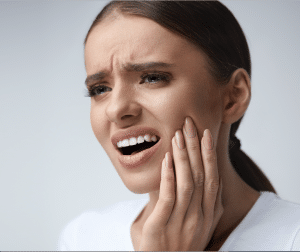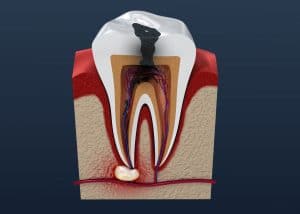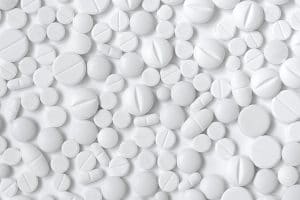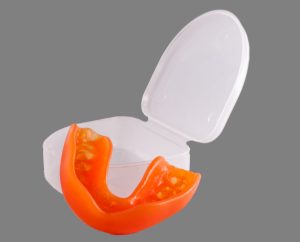You Have Pain: Pain or swelling in your mouth, face or neck can mean a number of things.
Your Gums Are Acting Up: If your gums are puffy, they bleed when you brush or floss, or you have a family history of gum disease, it’s time to make an appointment.
You Try to Hide Your Smile: Whether you’re self-conscious about a missing tooth or hoping for a brighter smile, don’t be shy about talking to your dentist.
You Have Ongoing Medical Issues: Make your dentist part of your team if you have a medical condition (such as diabetes, cardiovascular disease, eating disorders), or you are undergoing medical treatment (such as radiation, chemotherapy or hormone replacement therapy).
You’re Pregnant: It’s safe to go to the dentist while pregnant. In fact, pregnancy can worsen some dental problems, so don’t miss your regular checkup.
You’re Having Trouble Eating: Difficulty chewing or swallowing is not the norm.
You Have Dry Mouth: Always feeling parched could be the sign of a medical issue or a medication side effect.
You Use Any Kind of Tobacco: From bad breath to oral cancer, cigarettes, vaping and chewing tobacco are harmful to your overall and dental health.
If you, your family or friends need dental care, we would be honored to provide you with state-of-the-art dental care in our modern dental practice. Refer someone you love to someone you trust!
Presented as a service to the community by Doctors Hoover and Yanda,
39 Milford Drive, Hudson, Ohio 44236. 330-650-0360. www.drshooverandyanda.com


 Sensitive teeth can be treated. The type of treatment will depend on what is causing the sensitivity. Your dentist may suggest one of a variety of treatments:
Sensitive teeth can be treated. The type of treatment will depend on what is causing the sensitivity. Your dentist may suggest one of a variety of treatments: Is a spoonful of ice cream or a sip of hot coffee sometimes a painful experience for you? Does brushing or flossing make you wince occasionally? If so, you may have sensitive teeth. Possible causes include:
Is a spoonful of ice cream or a sip of hot coffee sometimes a painful experience for you? Does brushing or flossing make you wince occasionally? If so, you may have sensitive teeth. Possible causes include: An abscessed tooth is an infection caused by tooth decay, periodontal disease or a cracked tooth. These problems can allow bacteria to enter the pulp (the soft tissue of a tooth that contains nerves, blood vessels, and connective tissue) and can lead to pulp death. When pus builds up it forms a pus-pocket called an abscess. If the abscess is not treated, it can lead to a serious infection in the jawbone, teeth and surrounding tissues.
An abscessed tooth is an infection caused by tooth decay, periodontal disease or a cracked tooth. These problems can allow bacteria to enter the pulp (the soft tissue of a tooth that contains nerves, blood vessels, and connective tissue) and can lead to pulp death. When pus builds up it forms a pus-pocket called an abscess. If the abscess is not treated, it can lead to a serious infection in the jawbone, teeth and surrounding tissues. When compared with nondrinkers, men and women who had one or more alcoholic drinks per day had an overabundance of oral bacteria linked to gum disease, some cancers, and heart disease. Alcohol drinkers also had fewer bacteria known to check the growth of other, harmful germs. These are the main findings of a study published in the journal Microbiome.
When compared with nondrinkers, men and women who had one or more alcoholic drinks per day had an overabundance of oral bacteria linked to gum disease, some cancers, and heart disease. Alcohol drinkers also had fewer bacteria known to check the growth of other, harmful germs. These are the main findings of a study published in the journal Microbiome. Opioids are not among the most effective—or longest lasting—options available for relief from acute dental pain, a new examination of the results from more than 460 published studies has found. Each day, more than 115 Americans die as a result of an opioid overdose, according to the National Institutes of Health.
Opioids are not among the most effective—or longest lasting—options available for relief from acute dental pain, a new examination of the results from more than 460 published studies has found. Each day, more than 115 Americans die as a result of an opioid overdose, according to the National Institutes of Health. Clinical studies have shown that chewing sugarless gum for 20 minutes following meals can help prevent tooth decay.
Clinical studies have shown that chewing sugarless gum for 20 minutes following meals can help prevent tooth decay. ment: Talk to your dentist about when is the right time to replace your mouthguard, but replace it immediately if it shows sign of wear, is damaged or ill-fitting. Teens and children may need to replace their mouthguards more often because their mouths are still growing and changing. Between games, it’s important to keep your mouthguard clean and dry. Here are some tips for making sure your mouthguard is always ready to go:
ment: Talk to your dentist about when is the right time to replace your mouthguard, but replace it immediately if it shows sign of wear, is damaged or ill-fitting. Teens and children may need to replace their mouthguards more often because their mouths are still growing and changing. Between games, it’s important to keep your mouthguard clean and dry. Here are some tips for making sure your mouthguard is always ready to go: Mouthguards help cushion a blow to the face, minimizing the risk of broken teeth and injuries to your lips, tongue, face or jaw. They typically cover the upper teeth and are a great way to protect the soft tissues of your tongue, lips and cheek lining. Your top teeth take the brunt of trauma because they stick out more. Your bottom teeth are a little more protected because they are further back.
Mouthguards help cushion a blow to the face, minimizing the risk of broken teeth and injuries to your lips, tongue, face or jaw. They typically cover the upper teeth and are a great way to protect the soft tissues of your tongue, lips and cheek lining. Your top teeth take the brunt of trauma because they stick out more. Your bottom teeth are a little more protected because they are further back. Poor maternal oral health can have significant impacts on a woman’s overall health and the health of her children.
Poor maternal oral health can have significant impacts on a woman’s overall health and the health of her children.